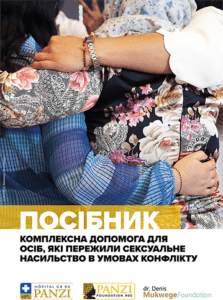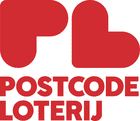September 28, 2022
Provision of Holistic Care in Ukraine
Following a mission to Ukraine in April 2022 to assess the needs for a holistic and survivor-centred response, the Mukwege Foundation, the Global Survivors Fund, and Panzi Hospital & Foundation DRC have agreed to support the government-led response to victims of wartime sexual violence in Ukraine. This collective commitment was made official through a Memorandum of Understanding (MoU), signed in July 2022, between the sister organisations and the Ukrainian Office of the Government Commissioner for Gender Equality Policy. The agreement sets out a collaboration between all parties to deliver quality holistic care and early reparations for survivors of conflict-related sexual violence.

Building on the experience of the Panzi team in the Democratic Republic of the Congo, the Mukwege Foundation and its partners are rolling out and adapting the model of survivor-centred holistic care to the Ukrainian context. By embedding the Panzi model in existing healthcare services, we hope to strengthen the capacities of Ukrainian service providers and first responders to receive and care for survivors of conflict-related sexual violence. For the Mukwege Foundation, our work has begun with the translation of the Holistic Care Handbook into Ukrainian and developing training modules for first responders and caregivers who are at risk of secondary trauma.
The first training in August was conducted in partnership with ARQ International and attended by 20 participants including hotline operators, mental health professionals, and emergency responders. During this hybrid session, participants shared experiences around the dilemmas they encounter in their work and the complex emotions they need to navigate. Their jobs require them to listen to survivors’ stories and register reports of atrocities, but at the end of the day, they have to return to their personal life, try to stay safe, and check in with family members who are separated in other cities and care for their children, parents, or pets in wartime. Each of them shared their coping strategies to strengthen each other.
“When I drive my child to school, I turn on Ukrainian music and I sing my heart out. I would cry in the car, but wipe my eyes and get ready to work when I arrive at the office,” said Irina who works at a hospital.

Self-care and stress management was chosen as the first module to help participants cope with accumulated stress and compassion fatigue. Through the training, they learned to identify symptoms of post-traumatic stress disorder, manage stress, practice meditation, and value the importance of taking breaks.
“Sometimes I have so many patients that I do not have the time to have a break in-between appointments. On days like these, I will open my window and breathe the fresh air,” said Kateryna who works as a psychologist.
Ms Kateryna Levchenko, the Ukraine Government Commissioner for Gender Equality Policy, applauded the first responders and their service at the forefront of the war effort. She said: “You can only take care of others if you also care for yourselves. The people need you, and I thank you for attending this training.”
Due to the success of the first training, and the recognised need to care for first responders’ wellbeing, a second training session will be delivered at the end of September. In the coming year, the Foundation and its Ukrainian partners plan to establish a one-stop-centre and a centre of excellence, based on the Panzi model, offering quality, survivor-centred care for Ukrainian victims and survivors.
















